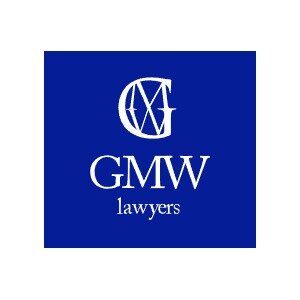Best Housing, Construction & Development Lawyers in The Hague
Share your needs with us, get contacted by law firms.
Free. Takes 2 min.
Free Guide to Hiring a Real Estate Lawyer
List of the best lawyers in The Hague, Netherlands
About Housing, Construction & Development Law in The Hague, Netherlands
Housing, Construction & Development Law in The Hague, Netherlands governs the rules and regulations related to real estate, property development, and construction projects within the city. These laws aim to ensure the safety, sustainability, and proper functioning of the housing and construction sector.
Why You May Need a Lawyer
There are several situations where seeking legal help in Housing, Construction & Development in The Hague may be necessary:
1. Property disputes: If you are facing conflicts related to property ownership, boundaries, or rights, a lawyer can help clarify legal rights and resolve disputes.
2. Lease agreements: When entering into a lease agreement, it is essential to understand your rights and obligations. A lawyer can review the contract, negotiate terms, and protect your interests.
3. Construction permits: Construction projects require compliance with various permits and regulations. A lawyer can guide you through the application process and ensure legal compliance.
4. Tenancy issues: If you are a tenant facing issues such as unlawful eviction, rent increases, or maintenance problems, a lawyer can advise you on your rights and help resolve the situation.
5. Building defects: In case of construction defects or poor workmanship, a lawyer can help assess liability, negotiate with contractors, and seek compensation if necessary.
Local Laws Overview
Key aspects of local laws relevant to Housing, Construction & Development in The Hague, Netherlands include:
- Housing regulations: The city has specific regulations regarding rental contracts, rent control, and tenant rights. It is essential to understand these laws to protect your rights as a tenant or landlord.
- Planning and zoning regulations: The Hague has strict regulations regarding land-use planning, construction permits, and zoning restrictions. Compliance with these laws is crucial for any construction or development project.
- Environmental regulations: Construction projects must adhere to environmental regulations to ensure sustainable practices, energy efficiency, and proper waste management.
- Safety standards: The city enforces stringent safety standards for buildings and construction sites to protect the public welfare. These standards govern aspects such as fire safety, structural integrity, and accessibility.
Frequently Asked Questions
Q: How long does it take to obtain a construction permit in The Hague?
A: The processing time for construction permits varies depending on the complexity of the project. Typically, it can take several weeks to a few months. Consulting with a lawyer experienced in construction permits can help streamline the process.
Q: What steps should I take if my landlord fails to address maintenance issues?
A: In such cases, you should document the issues, notify your landlord in writing, and allow a reasonable time for repairs. If the landlord neglects their responsibilities, you may need to seek legal assistance to enforce your rights or terminate the lease agreement.
Q: Can a landlord increase the rent arbitrarily?
A: No, landlords in The Hague must adhere to strict rent control laws. Rent increases must generally follow a set formula or percentage specified by the government. If you believe your landlord is unfairly increasing the rent, seek legal advice to assess the situation.
Q: What are my rights if a construction company delivers substandard work?
A: If the completed construction presents defects or is below the agreed-upon quality standards, you may have a right to compensation. Consult with a lawyer to assess liability, review contracts, and pursue legal remedies.
Q: Are there any restrictions on property renovations or modifications?
A: The Hague has specific regulations regarding renovations and modifications, especially for historic buildings or properties in protected areas. It is advisable to consult with a lawyer familiar with local laws to ensure compliance and obtain necessary permits.
Additional Resources
- Municipality of The Hague (https://www.denhaag.nl/en.htm): The official website of The Hague provides information on local regulations, permits, and housing-related matters.
- Juridisch Loket - The Hague (https://www.juridischloket.nl/contact/the-hague/): The Juridisch Loket is a Dutch legal aid organization that provides free legal advice and assistance. Contact their office in The Hague for specific housing, construction, and development inquiries.
- The Hague Housing Portal (https://www.thehaguehousingportal.com/): An online platform providing information on housing options, rental contracts, and legal matters in The Hague.
Next Steps
If you require legal assistance in Housing, Construction & Development in The Hague, Netherlands, here's what you should do:
1. Identify your specific legal issue within the field of Housing, Construction & Development.
2. Determine if your situation requires immediate action or if it can be addressed through consultation with a lawyer.
3. Research and contact reputable law firms or legal aid organizations specializing in housing, construction, and development law. Consider their areas of expertise, experience, and client reviews.
4. Schedule a consultation with a lawyer to discuss your case, present relevant documents or evidence, and seek professional legal advice.
5. Based on the lawyer's guidance, determine the best course of action, whether it involves negotiation, mediation, legal action, or other appropriate means to resolve your issue.
Lawzana helps you find the best lawyers and law firms in The Hague through a curated and pre-screened list of qualified legal professionals. Our platform offers rankings and detailed profiles of attorneys and law firms, allowing you to compare based on practice areas, including Housing, Construction & Development, experience, and client feedback.
Each profile includes a description of the firm's areas of practice, client reviews, team members and partners, year of establishment, spoken languages, office locations, contact information, social media presence, and any published articles or resources. Most firms on our platform speak English and are experienced in both local and international legal matters.
Get a quote from top-rated law firms in The Hague, Netherlands — quickly, securely, and without unnecessary hassle.
Disclaimer:
The information provided on this page is for general informational purposes only and does not constitute legal advice. While we strive to ensure the accuracy and relevance of the content, legal information may change over time, and interpretations of the law can vary. You should always consult with a qualified legal professional for advice specific to your situation.
We disclaim all liability for actions taken or not taken based on the content of this page. If you believe any information is incorrect or outdated, please contact us, and we will review and update it where appropriate.











